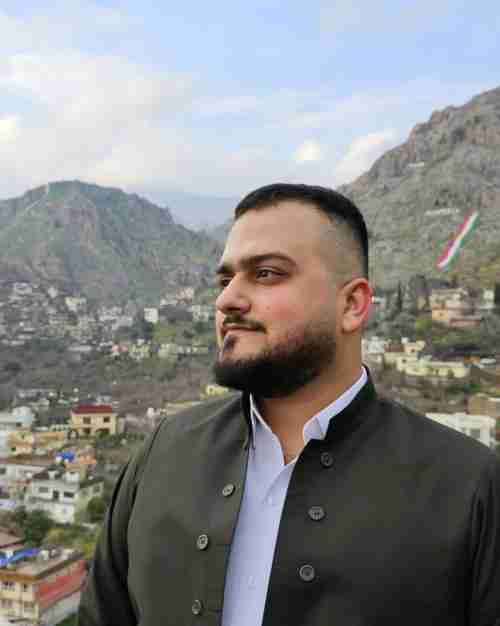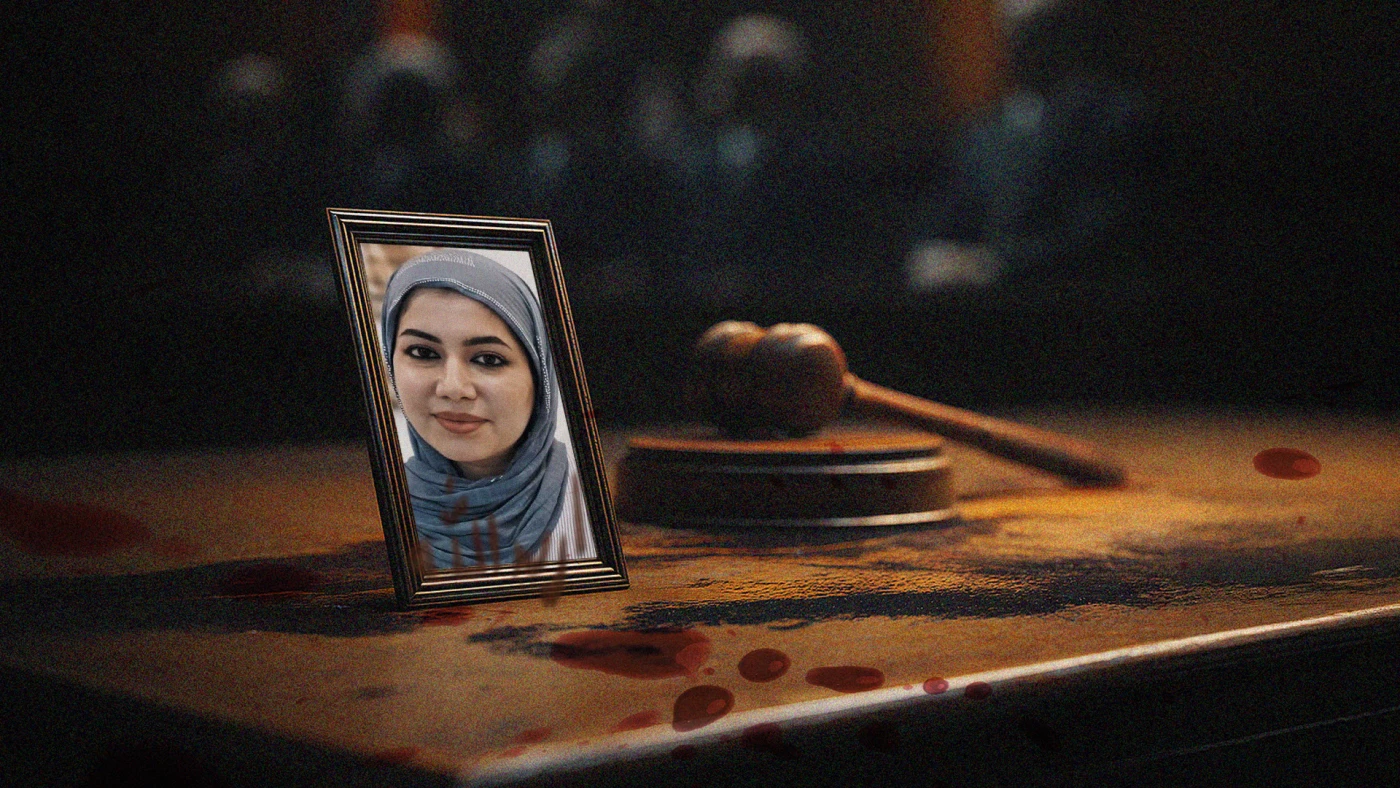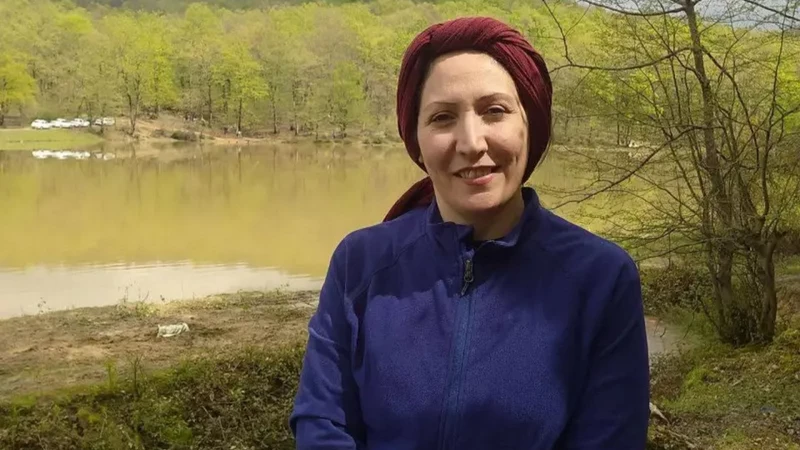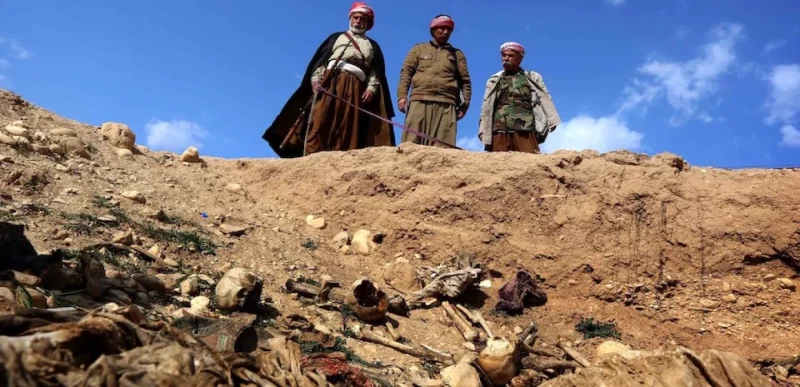ERBIL, Kurdistan Region of Iraq – The death of a psychiatrist in Basra has taken Iraq by storm, with skeptics repudiating the narratives alleging her suicide; suggesting that the young doctor is the latest victim of Iraq’s ever-present patriarchy.
On Monday, Iraq’s Supreme Judicial Council announced that the Basra Appellate Court has informed them that they have closed the investigation into the mysterious death of Psychiatrist Ban Ziyad, claiming that the evidence “clearly indicates that the incident was a suicide.”
The controversial verdict further enraged the Iraqi public, where masses had already categorically rejected the claims that Ban’s death was a suicide, holding large demonstrations across the country demanding justice for the young psychiatrist.
Ban's death and her parents' claims of 'suicide'
On August 4, Ban’s brother called his parents who were away on vacation in Turkey, telling them that his sister had been in a car crash and was receiving medical treatment at an intensive care unit.
The parents soon rushed home, only to find their daughter’s dead body inside the bathroom of their house.
The Basra Police Command announced shortly after that they have opened an investigation into the case, but noted that the family of the deceased have stated that Ban was struggling with mental health issues and that her death was a suicide.
Ban’s friends and coworkers quickly cast doubt on the suicide allegations, rejecting the claims that she had been struggling with depression, and suggesting foul-play. Their statements were seemingly supported after reports emerged describing the conditions under which Ban’s body was found.
The reports claimed that both of Ban’s wrists were slit, that her neck showed clear signs of strangulation, and that there were bruises all over her body. Graphic images of the body and the bathroom where the corpse was found were posted online, but The New Region has not been able to independently verify them.
Tens of thousands of Iraqis took to social media platforms to voice their anger, arguing that Ban had actually been killed by her brother, and accusing the family of lying to cover up for him. Large crowds across the country took their frustration to the streets, raising pictures of the young doctor and demanding authorities bring her justice.
Despite the heavy backlash, Ban’s family stuck to their guns, refusing to change their narrative and reiterating that their daughter had already been struggling with mental illness.
“She was a successful doctor, beloved by her coworkers and her family, and had no negative qualities. But this happens. People struggle with work and psychological pressure, especially when you work in a clinic or a hospital, and she is a psychiatrist. So, she became depressed, and what happened happened. It led her to suicide,” Ziyad Tariq, Ban’s father, told local media days after her death.
The father confirmed that he came back to Iraq under the impression that she had been in a traffic accident, but was “shocked” to see her body upon his arrival.
Tariq claimed that there are “records, writings, and journals,” allegedly showing Ban’s struggles with mental illness, using it to justify their suicide claims.
“They’re all evidence for the security authorities. God willing, the truth will come out and it will show people to no longer post baseless lies on this subject. Let the authorities and investigations take their course,” the father added.
Ban’s mother claimed that it was “work pressure” that drove her daughter to suicide. “There are those who can tolerate it, but there are also those who cannot tolerate it,” she told local media.
“This is my daughter, and I know her. It was because of psychological pressure that this happened to my daughter,” she added.
The Iraqi authorities' efforts
Amid mounting pressure from the public, the Iraqi government ramped up their efforts to get to the bottom of the case —efforts which came more than a week after Ban’s death.
On August 12, Iraqi Interior Minister Abdul Amir al-Shammari directed dispatching an investigative committee to Basra to probe the incident, noting that they will coordinate with the “just” Iraqi judiciary in all measures relating to the case.
A source from the Iraqi government on Friday told state media that Prime Minister Mohammed Shia’ al-Sudani had ordered “a close follow-up of the investigation” into Ban’s death, adding that the premier was personally following up on the case with the interior minister.
An investigative court in Basra on Friday announced that they had detained a suspect in the case of Doctor Ban after recording the statement of several witnesses, stressing that “the court is awaiting the forensic report to determine the true causes of death.”
The Iraqi parliament’s human rights committee said in a statement on Friday that they were following the psychiatrist’s case “with deep concern,” emphasizing the need to deal with the incident “with complete transparency and seriousness, and to urgently uncover its circumstances and causes.”
The committee acknowledged “the frequency” of such cases and “the growing violations of Iraqi women's rights… and the increasing psychological conditions,” calling on the government to reconsider this issue, and noting that the next government must establish a ministry to deal with the affairs of women, family, and children.
The Iraqi government’s Supreme Council for Women also conveyed “deep concern and sadness” over the psychiatrist’s death, while expressing “confidence that the Iraqi judiciary will play its role with full transparency and justice to address the victim.”
The state of women's righs in Iraq and concerns for the future
Whether Ban truly committed suicide or not, the premature closing of investigations into her death, despite the presence of significant evidence against the announced verdict, exacerbates the Iraqi population’s disillusionment with a judiciary long criticized for its shortcomings and perceived inability to enact justice.
Human rights monitors and activists have argued that there has been a setback in women’s rights in Iraq in recent years, especially in the wake of the passing of controversial amendments to the country’s Personal Status Law in February, widely criticized for undermining women’s rights and potentially legalizing child marriages.
In a community largely governed by conservative religious ideologies and outdated notions of patriarchy, women in Iraq endure crippling marginalization on account of their gender across all walks of life; in their homes, on the streets, in the workplace, and even in the law.
Cases of women killing and violence against women are significantly underreported, but official data still show alarming surges in those rates. Around 9,000 cases of domestic violence were recorded across the country by official authorities in 2023, while more than 13,000 were reported in the first half of 2024 alone.
Activists and much of the Iraqi public fear that Ban has become just another statistic; another independent woman killed by an immediate family member, failed by the authorities, and ultimately forgotten in the span of weeks.
“Iraqi authorities have long dragged their feet in criminalizing family violence,” Razaw Salihy, Amnesty International’s Iraq Researcher, told The New Region soon after the judiciary released its verdict on Monday.
“Backed by legislation that mitigates so called “honor-killings”, courts have been reluctant to punish killers of women and girls. This impunity has created the perfect environment for deeply rooted societal norms that condone and even justify violence against women to go on unchecked,” the researcher added.
In addition to helping her patients at her clinic, Ban was also a social media influencer, raising awareness for mental health through educational videos, in hopes of reducing the social stigma associated with mental illness in Iraq.
“Keeping silent about your rights is what encourages people to continue such behaviors,” the psychiatrist tells her female audience in one of the videos that has resurfaced after her tragic death.



 Facebook
Facebook
 LinkedIn
LinkedIn
 Telegram
Telegram
 X
X


